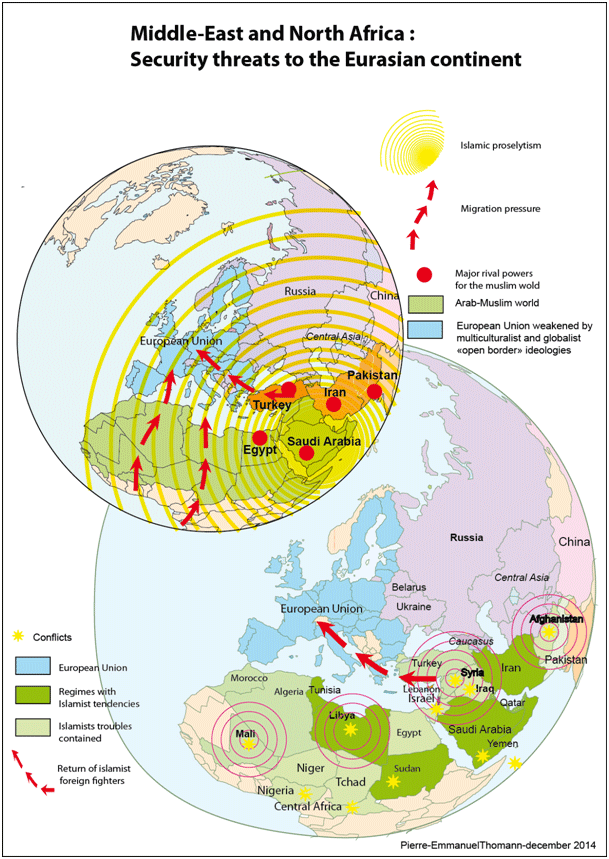Middle East and North Africa chaos: The absence of European strategy
The formation of a coalition of the willing under the leadership of the United States to eradicate the Islamic State in Iraq and Syria rises several important questions. Among them the most important is: Is this way of operating in the interest of European continent security?
The marginalization of United Nations
The French government stressed in its last 2013 French White Paper on Defence and National Security that he would always ask authorization to use military action through the United Nations Council. As a permanent member of the UN Security Council, it is in French interest to have its say on all World security affairs. The second Irak war in 2003 has shown that debates at the Security Council were important for France, Germany and Russia to defend their point of view, even if the coalition of the willing decided to bypass the Security Council, destroying at the same time their legitimacy.
There is also a fundamental contradiction when the United States and European Union Member States criticize other States like Russia not to respect international law but bypass the organization themselves. The European countries, as middle rank powers, do have an interest in bringing this process back into the UN Security Council if they don’t want other great powers to act in a unilateral way.
The composition of the coalition against the Islamic State
How it can be that the main “allies” of the US are those countries which actually fed the Islamic State with finances and weapons (Saudi Arabia, Qatar, United Arab Emirates)? Saudi Arabia avoid to give some concrete commitments but give just formal promises to support Washington because the Islamist State presents now a real menace to Saudi Arabian regime. The Islamist State was in fact a convenient instrument for Saudi Arabia to achieve its own geopolitical goals in the region: contain Iran (and Shiite expansion), to fight against Assad, and keep instability in Iraq (as they could try to remove prime minister Maliki). As part of coalition negotiations, the minimum requirement wouldn’t it be to force Saudi Arabia and Qatar stop supporting the Islamic State (including via different charities and NGOs)?
Why accepting for European countries the United States government as the leader of this operation without any criticism when they know that it was the American war against Irak in 2003 that was the main factor of destabilization with the elimination of Saddam Hussein. The regime change after the Libya war in 2001 with the elimination of Kadhafi (with the active help of France and UK in 2011) and the goal of regime change in Syria only added to the current chaos.
It would however be useful for Europeans to assess past failures in which many of them were also active (especially in the coalition of the willing in 2003), ask the United States to commit itself to a real global strategy, and enlarge the coalition through the United Nation Security Council before to commit themselves to military action. (Read more)
